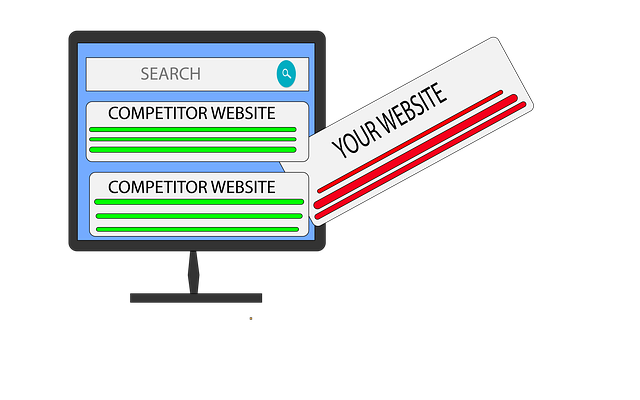AI chatbots, powered by Natural Language Processing (NLP), are transforming e-commerce by delivering personalized customer experiences. They handle queries, offer product recommendations, and guide checkout, enhancing engagement and satisfaction. Integrating these virtual assistants into e-commerce platforms optimizes resource allocation, with ongoing advancements driven by AI's evolution. Key benefits include 24/7 support, sophisticated query understanding, and tailored product suggestions, driving sales and fostering brand loyalty in a competitive digital marketplace.
“Discover the transformative impact of AI chatbots and Natural Language Processing (NLP) on the e-commerce landscape. This article explores how these technologies are revolutionizing customer interactions, enhancing user experiences, and driving sales. From understanding the fundamentals of AI chatbots to harnessing the power of NLP, we delve into the seamless integration of these tools into e-commerce platforms. Furthermore, we anticipate future trends, highlighting advanced chatbot technologies that promise to shape the digital shopping journey.”
- Understanding AI Chatbots and Their Role in E-commerce
- The Power of Natural Language Processing (NLP) in Chatbots
- Integrating Chatbots into E-commerce Platforms: Benefits and Best Practices
- Future Trends: Enhancing Customer Experience with Advanced Chatbot Technologies
Understanding AI Chatbots and Their Role in E-commerce

AI chatbots are transforming the landscape of e-commerce, offering a personalized and efficient customer experience. These intelligent virtual assistants leverage Natural Language Processing (NLP) to understand user queries, provide relevant product recommendations, and offer 24/7 support, mirroring human interactions. By integrating chatbot in ecommerce platforms, businesses can significantly enhance their customer engagement and satisfaction levels.
Chatbots can handle a wide range of tasks, from answering frequently asked questions about products or shipping to guiding customers through the checkout process. This not only improves the overall shopping experience but also allows human customer service representatives to focus on more complex issues, ensuring optimal resource utilization. As AI continues to evolve, chatbots in ecommerce are expected to become even smarter and more capable, further revolutionizing how businesses interact with their customers.
The Power of Natural Language Processing (NLP) in Chatbots

In the realm of AI chatbots, Natural Language Processing (NLP) stands as a game-changer, revolutionizing customer interactions and transforming the landscape of ecommerce. By enabling chatbots to understand and interpret human language, NLP allows for more natural and effective communication between customers and these digital assistants. This technology is particularly powerful in the context of ecommerce, where it can enhance user experiences, drive sales, and provide personalized recommendations.
Chatbots powered by NLP can navigate complex customer queries, offer tailored product suggestions, and facilitate seamless checkout processes, all while learning and adapting to individual preferences. This level of customization creates a unique and engaging shopping experience, fostering customer satisfaction and loyalty. With the ability to process vast amounts of data from customer interactions, chatbots in ecommerce can identify trends, predict demands, and deliver targeted marketing strategies, ultimately driving business growth.
Integrating Chatbots into E-commerce Platforms: Benefits and Best Practices

Integrating AI chatbots into e-commerce platforms has emerged as a powerful strategy, offering numerous benefits for both businesses and customers alike. By deploying chatbots, e-commerce sites can enhance customer support, improve user engagement, and drive sales. These virtual assistants provide instant responses to buyer queries, offer personalized product recommendations, and facilitate seamless checkout processes, thereby boosting overall satisfaction levels.
Best practices involve ensuring a natural and conversational chatbot experience. This requires leveraging Natural Language Processing (NLP) techniques to understand user intent accurately. Chatbots should be designed to handle diverse customer interactions, from simple questions to complex issues. Regular updates and training on new products and promotions are essential to keep the chatbot’s knowledge base current. Additionally, integrating chatbots with existing customer relationship management (CRM) systems allows for better data-driven insights and personalized marketing campaigns, solidifying their role as valuable additions to e-commerce ecosystems.
Future Trends: Enhancing Customer Experience with Advanced Chatbot Technologies

The future of customer experience in ecommerce is set to be transformed by advanced chatbot technologies. As artificial intelligence continues to evolve, chatbots are becoming increasingly sophisticated, capable of understanding complex queries and providing personalized responses that meet consumer needs. With natural language processing (NLP) at their core, these intelligent agents can engage in meaningful conversations, offering 24/7 support and enhancing user satisfaction.
Ecommerce businesses are leveraging chatbot integration to streamline customer interactions, reduce response times, and provide tailored product recommendations. By analyzing customer behavior and preferences, advanced chatbots can offer a level of personalization that traditional automated systems couldn’t match. This shift towards more human-like interactions is set to foster stronger brand loyalty and drive sales in an increasingly competitive digital marketplace.
AI chatbots powered by Natural Language Processing (NLP) are transforming e-commerce by revolutionizing customer interactions. Integrating these intelligent assistants into online platforms offers numerous benefits, from 24/7 support and personalized product recommendations to improved order management and reduced customer service costs. As chatbot technologies advance, we can expect even more sophisticated interactions that enhance the overall shopping experience, making them an indispensable tool for businesses aiming to stay competitive in the digital landscape.
